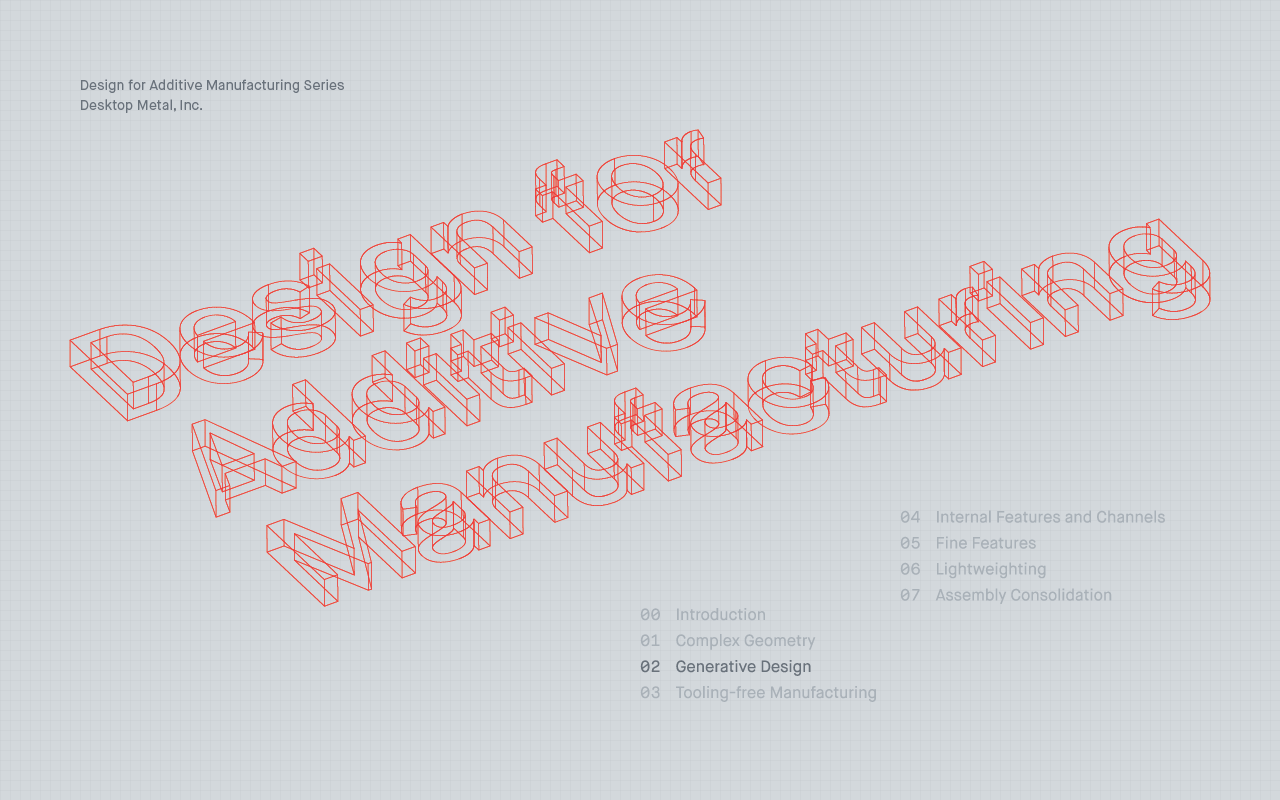
Design for Additive Manufacturing: Tooling-free Manufacturing

Introduction
Without the need to manufacture jigs, fixtures or molds, engineers and designers can go from design to functional part in as little as a day.
If needed, designers can print multiple versions of a part, then quickly iterate on the design based on functional testing results. The speed and accessibility of additive manufacturing allows design teams to go through dozens of design iterations in as little as a week.
Once part designs are finalized, binder jetting technology makes it easy to go from printing one-off, low volume prototypes to producing thousands or even up to millions of parts.
Because there is no need for tooling or complex set-ups, manufacturers can produce a part one day, and switch to a new part the next, with no delay in production.
Tooling-free Manufacturing
Additive technology also enables DfAM principles by eliminating the need for hard tooling.
Without the need to manufacture jigs, fixtures or molds, engineers and designers can go from design to functional part in as little as a day. If needed, designers can print multiple versions of a part, then quickly iterate on the design based on functional testing results. The speed and accessibility of additive manufacturing allows design teams to go through dozens of design iterations in as little as a week.
Once part designs are finalized, binder jetting technology makes it easy to go from printing one-off, low volume prototypes to producing thousands or even up to millions of parts.
Because there is no need for tooling or complex set-ups, manufacturers can produce a part one day, and switch to a new part the next, with no delay in production.
Part Examples
Seat Belt Pulley
This output pulley is an essential component of the retracting mechanism in a car seat belt.
This part features an undercut radial groove that, without printing, would require advanced sliders during the press-and-sinter process. Printing this part with the Shop System™ eliminates the huge cost and complexities associated with press and sinter.
Depending on the model of car, different models of this pulley may be needed. By eliminating the need for tooling, 3D printing allows manufacturers to easily switch between designs - one model can be printed overnight, and a different design printed the very next day, with virtually no delay or setup time.

Bulb Nozzle
This part is a custom spray nozzle used in chemical processing.
Though normally cast, followed by extensive secondary machining operations, this part needed to be produced in quantities of approximately 300, making it an ideal fit for the Shop System™. By printing the nozzles, the entire order could be produced in less than a week, and required just one secondary threat-tapping operation.
Depending on the chemical operation, different spray geometries may be required - since 3D printing eliminates the need for tooling the nozzle can be changed on demand and printed to conform to each process.

VVT Gear
This gear enables the engagement and shifting of all gears in a six speed motorcycle transmission.
This part was able to be printed on the Shop system without the need for tooling, this led to a decrease in manufacturing lead time as well as a reduction in part cost. Since no tooling was needed this part can also be easily changed for different transmissions.
The complex, thin features in this part would make it a challenge for machining and would require a very complex/ expensive metal injection mold tool.

